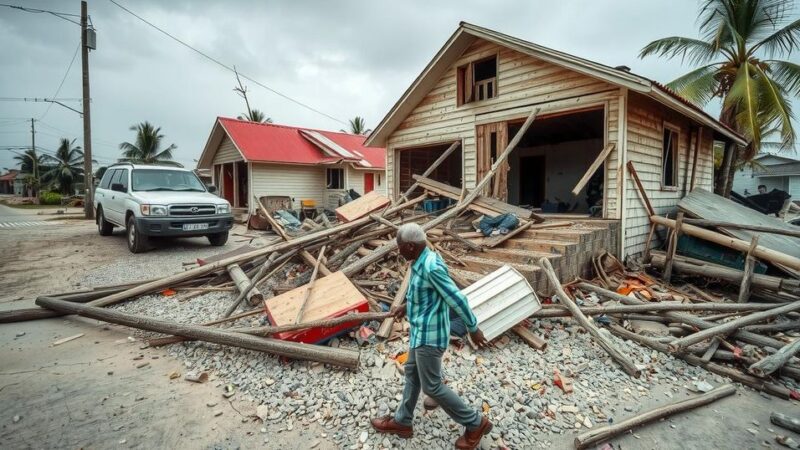Small island nations have requested the ICJ to look beyond existing climate treaties to hold high-emitting states accountable for climate change. Vanuatu’s climate envoy emphasized their nations’ struggles due to actions by states with significant emissions. Countries like the Bahamas and Barbados provided compelling testimonies regarding the impacts of climate change, asserting the need for legal responsibilities on emitters. The case highlights the necessity of integrating broader international law into climate justice considerations.
On December 2, 2024, nations facing dire repercussions from climate change appealed to the International Court of Justice (ICJ) in The Hague to extend its consideration beyond existing climate treaties such as the Paris Agreement. Ralph Regenvanu, Vanuatu’s special climate envoy, emphasized the breach of international law by high-emitting states during the opening address of this significant legal proceeding, initiated by the Pacific Islands Students Fighting Climate Change and supported by Vanuatu’s government.
Regenvanu elaborated on the existential threat faced by Pacific island nations, stating that the cultures developed over centuries are now jeopardized by climate change instigated by actions beyond their control. Vanuatu’s Attorney General, Arnold Kiel Loughman, called upon the Court to enforce accountability, questioning the legality of actions leading humanity towards a potential catastrophe and urging the ICJ to reaffirm state obligations under international law.
Climate representatives from multiple affected nations underscored the inadequacies of current climate agreements in addressing broader aspects of international law. During the hearings, Barbados presented compelling evidence of climate impact, asserting that wealthy polluter nations must acknowledge their responsibilities.
Bahamas Attorney General, Ryan Pinder, brought forth the significant damage from Hurricane Dorian, highlighting the massive economic toll and loss of lives experienced as a direct consequence of neglect by high-emission countries. He firmly stated, “It is time for these polluters to pay,” advocating for swift reductions in greenhouse gas emissions and reparations for those harmed by climate inaction.
Saudi Arabia’s representatives, on the other hand, cautioned against extending legal rights to future generations, arguing that it could impede progress in existing international climate agreements. Pinder countered this claim, stressing that human rights and prevention obligations are integral to climate treaties and do not negate established international law. This highlights the complex interplay between climate agreements and the broader legal frameworks governing state responsibilities.
The ongoing climate crisis disproportionately affects small island nations, often leaving them vulnerable to rising sea levels and extreme weather events. This legal case before the International Court of Justice aims to hold high-emitting countries accountable for their contributions to climate change. Historically, international environmental agreements have struggled to enforce compliance, and non-binding treaties have led to gaps in accountability and action. Given the pressing nature of climate exigencies, the call for the ICJ to address these broader legal obligations is unprecedented and critical.
In conclusion, the appeal presented by small island states to the ICJ seeks to redefine the obligations of high-emitting countries amidst climate change. Vanuatu and other nations have articulated the urgent need for accountability and robust legal frameworks that extend beyond existing treaties. As climate change leads to severe consequences including cultural and economic disruptions, the actions of the ICJ in this instance may have far-reaching implications for international law and climate justice.
Original Source: www.ipsnews.net







